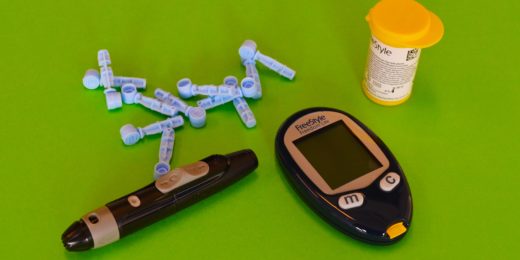Determining the optimal dosage of medication for patients isn't as dramatic as emergency surgery or a diagnosis in a critical situation, but it's crucial for ensuring the best patient care, and it can even save lives.
Heart failure, in particular, is a devastating problem, specifically for patients who are veterans, said Rhonda Hamilton, MD, a clinical assistant professor of primary care and population health and general medicine clinic section chief at the Veterans Affairs Palo Alto Health Care System. So in those instances, when it comes to giving the correct dosage of medicine, the stakes are even higher.
Hamilton initially worked on this problem as part of a population health team seeking to improve quality of care for veterans. The team conducted a study with a simple goal: Find a way to make sure patients with heart failure receive the optimal dosage of medications.
Heart failure patients are often put on a combination of four different classes of drugs that, in combination, can help people live better and longer lives with their condition. But, among approximately 1,400 patients with heart failure, the team found that fewer than half were taking the drugs at a dosage that was at least 50% of the recommended dosage. (Some patients can't tolerate the entire recommended dose, so 50% is used as a benchmark). This study was geared toward improving those statistics.
Finding the right interventions
In a typical 30-minute appointment with a patient who is a veteran, there's barely enough time to discuss one medication, let alone several, said Hamilton. Veteran patients take an average of 10 medications each, and time spent discussing how and when to take medication, as well as side effects, can often take up the entire visit.
The team Hamilton worked with discovered that two interventions -- a data dashboard alerting doctors of patients who are not on the recommended dosage of beta-blockers and ACE inhibitor-like drugs, which both help reduce blood pressure, and an increase in the use of pharmacists for iterative follow-up appointments with patients -- were highly successful.
During the five months of the study, which concluded in April 2020, patients, on average, improved their beta-blocker doses from 19% to 35% of the recommended dose, and their ACE inhibitor-like doses increased from 52% to 81% of the recommended dose.
Heart failure and health disparities
In addition to her work as part of this team, Hamilton was simultaneously thinking about how she could help improve the lives of patients who face disparities in health care. "As a Black female physician leader in medicine, I wanted to think about how to leverage my position to help address disparities in care for Black and Latinx patients," she said.
She was further motivated in the spring and summer of 2020 by the death of George Floyd and Black Lives Matter demonstrations that followed. Enlisting her daughter, Lauren, as a research assistant, Hamilton also created a VA committee to examine disparities in health care in the VA system.
Lauren, 17, a 4.0 student and National Merit Scholar, had never shown interest in medicine, but something changed in 2020. "It was so traumatic, as a Black person, to see the George Floyd incident on TV," said Hamilton. "It was hard not to burst into tears every 30 seconds, and during a pandemic [it was even worse]. That lit a fire under us, and we asked, 'What can we do to make an actual difference in people's lives?'"
The VA committee analyzed areas of medicine in which Black people received different care and had different outcomes, compared with white patients. To that end, Lauren gathered 75 articles that explored instances in which these disparities were displayed. "Pain medication prescription was one area," Hamilton said. "Black people who come with a fracture get low or no narcotic medication compared to their white counterparts. Hypertension treatment was another, and we found that heart failure was yet another."
The heart failure research, in particular, was striking: The committee found that Black patients meeting objective cardiac criteria, including EKG and echocardiogram results, with symptoms were far less likely to receive the recommended doses of medication, compared with their white counterparts, said Hamilton.
"It really made a big difference to [Lauren] after she read all these articles, wrote summaries of each one and discussed them at weekly meetings," Hamilton said of her daughter's experience. In fact, Lauren was the one who pointed out that, based on what she'd read, the interventions suggested for Black patients also helped white people, making them "an easy sell."
So what's next for Hamilton and her daughter? The two are also examining the messaging behind cardiac care. Using terms such as heart failure to describe a class of medication, Hamilton said, is so negative.
"We would like to change it to something like 'heart strong' medications. The treatments are working with your body to make your heart stronger. Just one or two words can make a difference," said Hamilton. It could be just the reminder that patients need: "We're in this together, fighting together."
Photo by Steve Fisch






